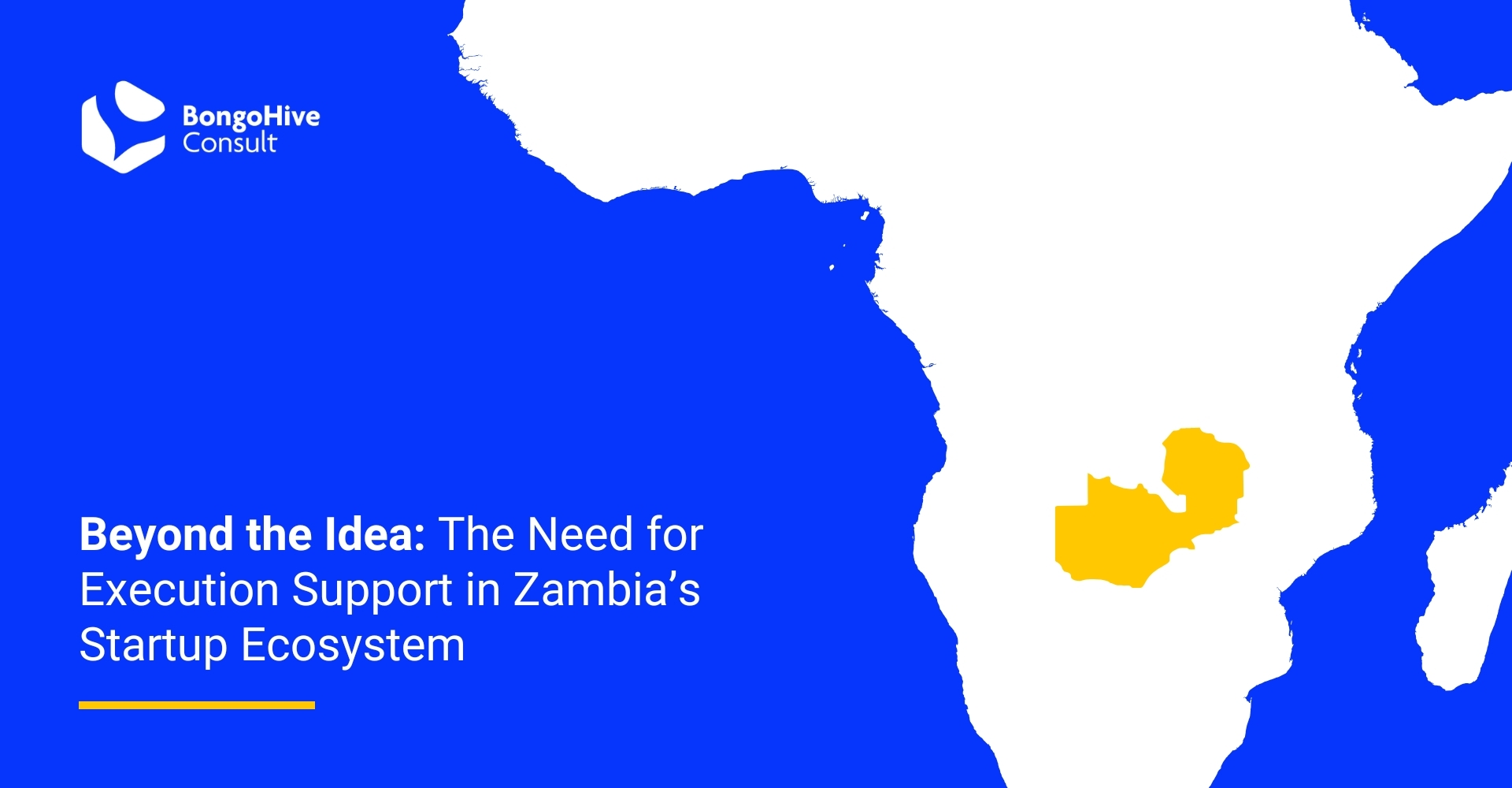
Zambia’s entrepreneurial landscape is rich with ideas, spanning from fintech innovations to sustainable agriculture. However, despite substantial progress in fostering ideation through various training programs and innovation hubs, there is a critical gap in execution support. This gap often results in promising ideas never reaching their full potential, stifling economic growth and innovation.
The Ideation-Execution Disconnect
Aspiring entrepreneurs in Zambia are adept at crafting and pitching innovative concepts, with numerous training programs emphasising creativity, market opportunities, and business planning. Yet, many startups falter when it comes to execution, a stage that demands more than just a solid business plan. Execution requires resources, strategic guidance, operational expertise, and ongoing support. Unfortunately, the ecosystem is heavily skewed towards ideation, leaving the execution phase under-supported.
Why Execution is Crucial
Execution is the bridge between a promising concept and a successful business. It encompasses product development, market entry, scaling, and customer acquisition. Without strong execution, even the most innovative ideas remain unrealized. Several factors contribute to Zambia’s execution gap:
- Limited Mentorship: While ideation programs provide initial guidance, mentorship during the execution phase is often lacking. Entrepreneurs need ongoing support in areas like product development, market strategy, and financial management.
- Inadequate Resources: Execution demands access to technology, infrastructure, skilled labour, and capital. Beyond funding, startups need operational resources such as manufacturing facilities, distribution networks, and skilled professionals.
- Regulatory Hurdles: Navigating Zambia’s regulatory environment can be overwhelming for startups, with bureaucratic processes often distracting entrepreneurs from focusing on growth.
- Scaling Challenges: Scaling requires not just funding but also the capacity to manage larger operations, expand customer reach, and maintain product quality. Many startups struggle to scale sustainably without adequate support.
The Impact of the Execution Gap
The execution gap leads to frustration among entrepreneurs and the abandonment of potentially transformative ventures. It also stifles economic growth, as startups are vital drivers of job creation and innovation. When local ideas fail to materialise, foreign companies often fill the void, leading to missed opportunities for homegrown solutions.
Closing the Execution Gap
Addressing this gap requires a multi-faceted approach:
- Comprehensive Mentorship: Mentorship should extend beyond ideation, guiding startups through execution with practical advice from industry experts and experienced entrepreneurs.
- Access to Resources: Startups need access to affordable co-working spaces, technological infrastructure, skilled labour, and supply chain networks. Public-private partnerships can help provide these resources.
- Streamlined Regulations: Simplifying the regulatory environment is essential to allow startups to focus on execution rather than bureaucracy.
- Support for Scaling: As startups grow, they need support to scale effectively, including access to growth capital, market expansion strategies, and operational expertise.
Conclusion: From Ideas to Impact
Zambia’s startup ecosystem is at a pivotal point. The challenge is no longer just generating ideas but turning those ideas into thriving businesses. By addressing the execution gap, Zambia can harness its entrepreneurial potential, driving economic growth, job creation, and social impact. The future of Zambia’s startup ecosystem hinges on our ability to support not just the ideation process but also the successful execution of those ideas.
 BongoHive
BongoHive